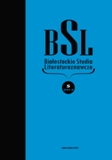Liminalność i poznanie w "Smudze cienia" Josepha Conrada. Między uniwersalnym a kontekstualnym rozumieniem inicjacji
Liminality and Cognition in "The Shadow-Line" by Joseph Conrad. Between the Universal and Contextual Understanding of Initiation
Author(s): Katarzyna SzkaradnikSubject(s): Literary Texts
Published by: Wydawnictwo Uniwersytetu w Białymstoku
Keywords: liminality; initiation; rite of passage; magical tale; Joseph Conrad
Summary/Abstract: The axis of "The Shadow-Line" by Joseph Conrad is the issue of initiation into the seaman craft and, at the same time crossing the threshold of adulthood. The author of this article, referring to the concept of the rites of passage of van Gennep, Turner and Eliade, as well as the model of Campbell’s mythic “hero’s journey”, analyses the process and anthropological implications of this initiation and considers to what extent the rites de passage are universal, and to what extent they are contextual. The ship crew turns out to be a communitas, a community of the liminal phase of the rite of passage, and the protagonist must realize the model-archetype in concrete circumstances. Even though the plot resembles the structure of a magical tale, one may find there the cultural reality of seamen’s work and the Victorian era.
Journal: Białostockie Studia Literaturoznawcze
- Issue Year: 2014
- Issue No: 05
- Page Range: 309-329
- Page Count: 21

